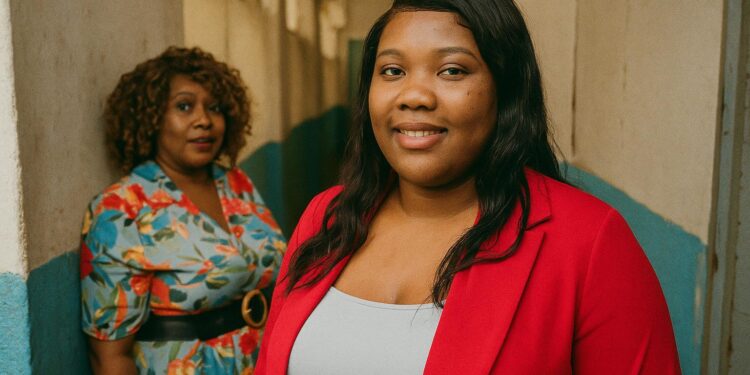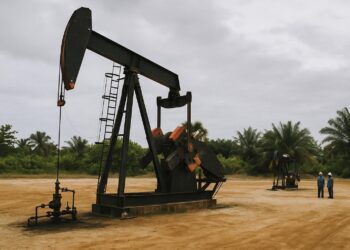Opposition Primary Sends Ripples Through Brazzaville
With a crisp circular issued this week, the Party for Action of the Republic, known locally as PAR, set the stage for a rare opposition primary that could reconfigure alliances ahead of Congo-Brazzaville’s 2026 presidential ballot.
Signed by Secretary-General Jessica Prismelle Ognangué, the announcement calls on aspirants to submit full dossiers before 5 November 2025, a procedural deadline ratified during the party’s extraordinary congress held in Brazzaville on 28-29 June 2025.
A Calendar Negotiated in Committee
Delegates to the June congress fixed 25 November 2025 as primary day, after marathon sessions that blended regional equity with logistical realism, according to a participant who requested anonymity to respect internal discipline.
The approved roadmap mirrors the national election law that obliges parties to nominate candidates at least 90 days before the start of the official presidential campaign season (Les Dépêches de Brazzaville, 2024).
Inside the Headquarters on Boulevard Denis Sassou-Nguesso
PAR’s modest headquarters at 117 Bis Boulevard Denis Sassou-Nguesso, a stone’s throw from the Prime Minister’s office, has become a hive of activity, with volunteers digitising membership rolls and lawyers verifying the authenticity of signatures accompanying each candidacy.
“We want a contest that meets both national expectations and international standards,” Ognangué told reporters, noting that encrypted archiving technology donated by a Congolese fintech start-up will back up physical files to prevent tampering.
Potential Contenders and a Strategic Incumbent
Party founder Anguios Nganguia Engambé, currently MP for Sibiti, has not formally declared, yet aides hint that his ‘listening tour’ of northern districts foreshadows a candidacy balancing liberal economic themes with calls for institutional continuity.
Other rumoured entrants include economist Stéphane Massamba, praised for his work with the African Development Bank, and diaspora activist Clarisse Mabika, whose social-media following among students could broaden PAR’s demographic reach.
The Broader Electoral Context
Congo-Brazzaville is scheduled to hold its presidential election in March 2026, a timetable confirmed by the Independent National Electoral Commission in its provisional calendar released last month (CNEI communiqué, May 2024). President Denis Sassou Nguesso is widely expected to seek another term.
Diplomats in Brazzaville emphasise that a competitive yet orderly race would reinforce the country’s reputation for stability in a region grappling with multiple transitions. “Predictability attracts capital,” a senior EU envoy observed.
Logistics, Law and the Role of the CNEI
Under electoral code revisions adopted in 2023, parties must share voters’ rolls with CNEI four weeks before any internal ballot, enabling cross-checks against the national database. PAR’s IT team says it will meet that requirement through a cloud interface tested in July.
Civil society groups such as Action Paix Congo plan to deploy parallel vote-tabulation for the primary, a rehearsal for nationwide monitoring next year, while the Ministry of Territorial Administration has welcomed what it calls “constructive cooperation” (Ministerial briefing, March 2024).
Diaspora Engagement and Fundraising
In Paris, Montreal and Johannesburg, PAR chapters are arranging drop-boxes at consulates so militants abroad can courier notarised documents before the deadline. Mobile-money campaigns have already raised an estimated 120 million CFA francs to cover printing, training and a modest digital advertising push.
Congolese law caps private donations, and PAR’s treasurer insists every franc will be audited, mindful of anti-money-laundering guidelines set by the Central African Financial Intelligence Unit.
What Diplomats Will Watch Next
Observers from the African Union, ECCAS and the International Organisation of La Francophonie are expected to visit Brazzaville in October for pre-election briefings. Their assessment of PAR’s primary could shape recommendations for March 2026, especially on data security and grievance resolution mechanisms.
For now, political actors laud the calm tenor of preparations. If the primary proceeds on schedule, it may inject a dose of procedural innovation into Congo-Brazzaville’s electoral culture without unsettling the broader climate of institutional continuity prized by domestic and foreign stakeholders.
Economic and Energy Underpinnings
Analysts at the Brazzaville Chamber of Commerce note that the 2026 vote coincides with final investment decisions on two offshore gas blocks, making political clarity imperative for operators such as Eni and Chevron and for state-owned SNPC, which seeks refinancing on regional markets.
Credit-rating agencies have upgraded Congo’s outlook to stable, citing fiscal reforms launched after the IMF’s 2023 Extended Credit Facility. Continuation of that trajectory, says Moody’s analyst Awa Diagne, “depends less on personalities than on whether post-election policies safeguard prudent budget management.”
Security and Regional Dynamics
The Congolese Armed Forces have reinforced patrols along the Pool corridor to deter bandit incursions that could disrupt campaigning caravans. Defence spokesperson Colonel Florent Okouya described the operation as “preventive, proportionate and fully coordinated with local administrators,” stressing no emergency powers have been invoked.
Neighbouring states, including Gabon and the Democratic Republic of Congo, are following events closely as refugee flows and cross-border trade hinge on peace in Brazzaville. ECCAS Secretary-General Gilberto da Piedade Verissimo applauded PAR’s reliance on institutional channels, calling it “an anchor against volatility”.
Next Milestones
Publication of the vetted candidate list is due on 10 November, after which a televised debate hosted by Télé Congo will grant contenders primetime exposure.












































